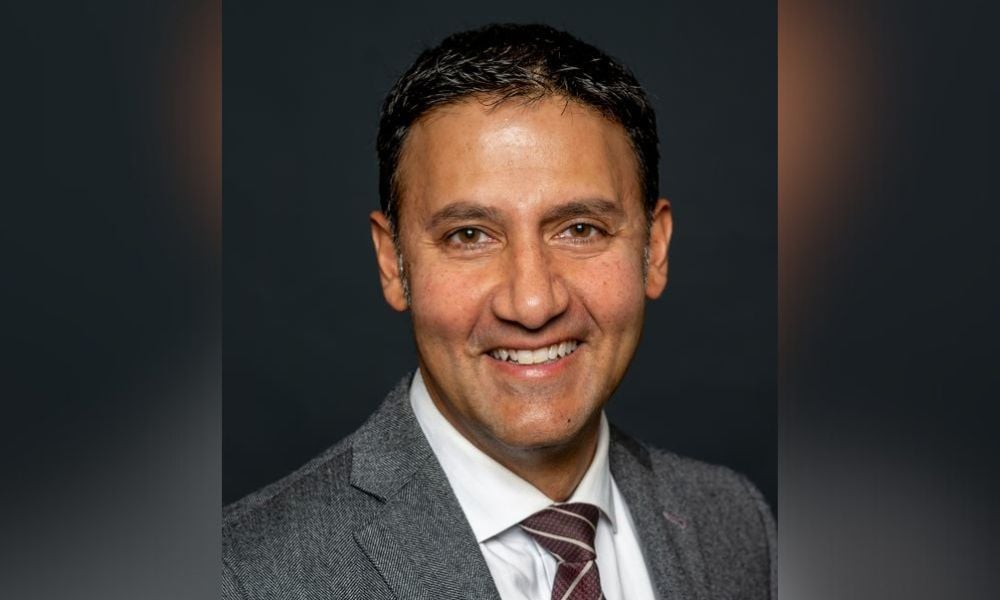Gary Goodwin dissects the minefield facing employers as the vaccine rollout begins
With the new vaccines from Pfizer and Moderna/BioNTech, we can finally wrestle the pandemic to ground, or at least hobble it for now. The question now becomes whether employers should mandate staff to take the vaccine.
The benefits seems obvious. The vaccines show an above 95 per cent efficacy against the COVID-19 virus. Far above what the companies dared hoped to achieve. There do not appear to be any serious side effects, but the research requires peer review. In the interim, Pfizer and Moderna/BioNTech applied for emergency FDA approval in the U.S.
With COVID having a much higher mortality rate than influenza, we would think that everyone would rush out to be vaccinated. However, Ipsos reported on November 6 2020 that only 54 per cent of Canadians would rush out to be vaccinated.
This seems somewhat counter-intuitive. We cannot assume that any workplace would be safe from COVID transmissions if only half of employees are vaccinated.
Then there is a small group of anti-vaxers who have convinced themselves that vaccines cause autism among other issues. There is no evidence that vaccines cause autism and Dr. Wakefield who propagated this false claim was subsequently removed from the medical registry.
In the same Ipsos report, 72 per cent of Canadians favoured mandatory vaccinations, but this support dropped to 61 per cent in November. In light of this vaccination hesitancy, I posted a short LinkedIn survey asking everyone’s thoughts about mandating the vaccine for employees in the workplace. Interestingly, 50 per cent of the respondents said that employers should not mandate the vaccine. The other 33 per cent said that all employees should be vaccinated while the remaining 17 per cent said that it would depend upon the employee’s position.
Of course, no employer can force an employee to be vaccinated. However, vaccination can possibly be a condition of employment. This condition can be found in some sectors of the health care field.
For example, the Ontario Ambulance Act requires medical attendants and paramedics to be free from all communicable diseases as outlined in the standards and to hold a physician signed certificate that the person is immunized against diseases listed in their standards.
The need for certain health care providers to be immunized makes sense. However, a study contained in the Canadian Medical Journal October 07, 2014 186 (14) found that only about 50 per cent of the non-mandated health care providers are vaccinated.
Outside of mandates by legislation, what rights might a private corporation have in mandating vaccines? Attempting to make a vaccination a condition of service can be a very difficult hurdle to overcome. Condition of service policies must comply with the various human rights codes, which prohibit discrimination upon religion, disability or creed. The creed criteria may be somewhat more nebulous, as in Ontario this is “a set of sincerely held religious beliefs or practices which need not be based on the edicts of an established church or particular denomination.” One tribunal, Ataellahi v. Lambton County (EMS), 2011 HRTO 1758, found that an employee’s general objection to vaccinations did not amount to a creed.
Conditions of Service policies may be subject to Canadian Charter of Human Rights and Freedoms if somehow government conduct violates an individual’s charter protected rights. This would not apply to private individuals or corporations.
On the other side of the needle, so to speak, would be the occupational, health and safety issues. Employers must provide a safe work environment, and employees can refuse unsafe work. Creating a safer work environment can still be somewhat achieved through personal protective equipment (PPE), social distancing and other barriers without the need for vaccinations.
This creates another issue if employers allow vaccinated employees to dispense with any COVID related PPE. Non-vaccinated staff may feel somewhat stigmatized by having to wear obvious PPE signalling their medical status.
Another potential difficulty would be employer liability for any reactions caused by a vaccine if it was a condition of service. There are numerous workers compensation cases resulting from vaccine reactions and arbitration decisions ascertaining whether or not the vaccine requirement was a condition of service.
If you need help with regards to workers compensation cases, consult a top-ranked worker compensation lawyer in Canada here.
Outside of Canada, interestingly, Bret Daniel and James Paul of Ogletree and Deakins in their Sept. 4, 2020 blog suggest that it would be legal for employers to mandate a vaccine. Their opinion applies to the U.S. so I found this surprising. Other commenters in Canada take the opposite opinion.
The federal and provincial governments would likely not mandate vaccinations for the general population. During the H1N1 outbreak for example, vaccinations were not mandated.
The best option for employers would be to make it as easy as possible for employees to choose the vaccination route. Dr. Richard Thaler's work in behavioural economics provides some assistance. The Nobel prize winner wrote "Nudge" which deals with why individuals appear to make irrational decisions, apparently contrary to the information in front of them. This suggests employers modify the environment to trigger automatic cognitive processes favouring the desired outcome.
Thaler discusses how making proper health decisions can be made easier. This may include ensuring everyone be provided time off to be vaccinated. People can be comforted knowing what others are doing. Discussing how other companies are encouraging their staff to be vaccinated can make health decisions easier. This could include discussing how a company's competitors might be dealing with staff vaccinations. This could then provide the company a competitive advantage.
The best way to encourage staff to be vaccinated is for management to lead by example.











